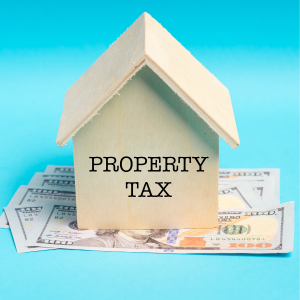
Selling a home offers unique opportunities and challenges, especially in New Orleans, Louisiana. In particular, New Orleans sellers should familiarize themselves with capital gains taxation. Capital gains taxation applies to the profit of a home sale. Selling a home can help expand one’s equity; however, taxation on that profit is of primary concern. In that sense, sellers should learn local statutes and any pertinent exemptions. Learning the principles of capital gains taxation will serve all home sellers well, especially concerning New Orleans home equity and profit on a home sale. We hope this guide provides the necessary information to ease the selling process.
Key Highlights
- Capital gains tax impacts real estate profits; understanding regulations aids in maximizing outcomes.
- Qualifying for gains exclusion requires meeting residency requirements; meticulous documentation is vital.
- Strategic property sales timing can optimize tax benefits, influencing potential capital gains tax obligations.
- Improving property before sale enhances value; documentation aids in reducing taxable gains.
- Consulting local tax professionals reveals unique deductions and ensures compliance with tax laws.
Overview of Capital Gains Tax in Louisiana Real Estate
In Louisiana, capital gains tax is one of the most important things when selling a home, as it influences how much profit you keep after the sale. Tax is applied when a property is sold at a profit, which becomes a significant issue for homeowners and real estate investors. The property market is dynamic; hence, the need to calculate and defend capital gains is one of the best strategies for maximizing profit.
In Louisiana, capital gains tax combines federal and state obligations. The federal government provides a basic framework, and Louisiana state taxes add additional concerns that must be addressed. The time the property was held, the type of investment, and the individual’s income all influence the tax owed. Proper interdisciplinary integration of these factors will lead to tax compliance and unnecessary tax exposure.
A smart strategy for managing capital gains tax can significantly boost your real estate profits. You can reduce your tax burden by distinguishing between short- and long-term gains, using available exclusions, and timing your sale strategically. These proactive steps protect your earnings and improve the overall return on your property investment in Louisiana’s active real estate market.
Contact us today to learn how our expert guidance can help you confidently navigate Louisiana’s capital gains tax. We’ll assess your situation, identify available exclusions, and develop a personalized strategy to minimize your tax burden and maximize your real estate profits.
Definition and Importance of Capital Gains
Profits realized from selling an asset, like real estate, for more than its purchase price, are capital gains. Investors in property need to grasp the intricacies of gains, as they are taxable and can affect their real proceeds considerably. Capital gains revenues are taxable in Louisiana, like in the other parts of the country; thus, the nature of capital gains in Louisiana will affect your overall financial position.
It is pivotal to comprehend the difference between short-term and long-term capital gains since it affects the type of tax to apply. Any asset disposed of in your possession for less than a year constitutes a short-term gain, which is taxed at ordinary income rates. The longer an asset is held, the more preferable tax rates apply to lower the tax burden and encourage longer investment periods. This difference in taxation is essential for the strategic planning of real estate and its tax efficiency.
Effective capital gains tax strategies allow income protection and maximization of exclusions and deductions. Considering the potential appreciation of property in Louisiana, realizing the extent and application of the federal and state tax laws concerning the sale of your real estate is critical. Understanding these passive laws and planning the appropriate tax strategies will effectively avoid unwarranted, unpleasant tax burdens and achieve the best investment results.
Navigating Capital Gains Tax When Selling a Home

Navigating capital gains tax after you sell your house fast in New Orleans and other cities in Louisiana requires understanding federal and Louisiana-specific rules. The state’s real estate market, marked by shifting property values, makes accurate capital gains calculation essential for homeowners and realtors. Knowing how these taxes work can help you optimize profits and minimize liabilities.
Determine whether your sale will qualify for a capital gains exclusion. Homeowners may qualify for an exclusion if the home was their primary residence for at least two of the five preceding years. The exclusion caps at 250,000 for individuals and 500,000 for married couples filing jointly. This exclusion offers substantial relief, so keeping scrupulous records of ownership and occupancy will help close the exclusion.
In Louisiana, a blend of federal (0-20%) and local/ state taxation may result in a 0-20% effective tax rate. Louisiana may include idiosyncratic deductions/ credits. For tax savings, a local tax specialist should be consulted. Additionally, coordinating the sale of your property and other transactions will help manage your taxable income to reduce income exposed to higher federal tax rates.
Engaging in proactive planning—whether through professional services or reputable tax software—identifies compliant tax reduction methods. Comprehending the interactions of federal and state laws equips homeowners to shield their profits and optimize the benefits gained from selling their properties.
How Capital Gains Exclusion Applies in Louisiana
Capital gains exclusion affects the bottom line when selling a home in Louisiana primarily because of the interplay between federal and state taxation. This exclusion is a significant benefit since individuals can exclude $250,000 of profits, and married couples filing jointly can exclude $500,000 from federal capital gains taxes. This exclusion will lower the taxable gains and help shield the profits from the sale, thereby increasing the total return.
Among the IRS tests, the primary ‘ownership and use test’ demands that the home was your residence for 2 of the last 5 years before the sale. Occasional exceptions, such as job relocation, health, and unforeseen events, could allow for a partial exclusion without having the full-time requirement. It would be in your best interest to familiarize yourself with these.
Meticulous tax planning in Louisiana can enhance the benefit gained from this exclusion. For instance, a sale timed with other income or deductions may decrease your overall tax burden. Having records of enhancements accompanied by properly documented expenses will increase the cost of the property, thereby reducing the gain on which tax will have to be paid. Using federal provisions and creative strategies on the local front will allow you to maximize your profit after the sale to improve your financial position.
Qualification Criteria for Gains Exclusion
To fully benefit from the capital gains exclusion when selling a property in Louisiana, it’s crucial to understand both federal and state qualification criteria. Under IRS rules, the home must have been your primary residence for at least two of the last five years before the sale. This indicates whether someone qualifies for the exclusion of up to $250,000 for single filers or $500,000 for married filers filing jointly. Louisiana, as mentioned, typically abides by these federal guidelines, albeit with some additional intricacies, thereby justifying a look at the local regulations.
The two-year residency requirement must be satisfied before one qualifies for the exclusion. Unforeseeable circumstances resulting in the sale of a person’s primary residence, such as a job change or a health matter, would typically result in a partial exclusion. Demonstrating proof of residency is essential to defend a time-apportionment claim, and this proof requires receipts, bills, tax returns, and licenses that substantiate the claim with a home address. There may be exemptions that need to be considered or exclusions that must be adhered to, which a tax practitioner can identify, and who has knowledge of the property law of Louisiana.
To sum up, to qualify for the capital gains exclusion in Louisiana, one must fully understand the rules, keep all relevant documentation, and get the required advice. Well-informed strategies are made to optimally increase the profit from the home’s sale, and consequently, run the lowest balance of taxable gains.
Maximizing Your Exclusion Benefits

Once you qualify for capital gains exclusion in Louisiana, the next step is to maximize your financial advantage through careful planning. After dealing with investor home buyers in Covington, New Orleans, and surrounding cities in Louisiana, strategic tax timing becomes key — aligning your property sale with other economic activities can help keep your taxable income within a lower bracket, minimizing the capital gains tax rate. Enhancing your property’s value before selling is another smart move. Upgrades like kitchen or bathroom remodels or improved curb appeal increase your sale price and raise your home’s cost basis, reducing the taxable portion of your gains. Be sure to keep thorough records of improvement costs for accurate reporting.
Localized analysis of your situation by tax or real estate professionals can help you utilize the exclusions effectively. They can also assist in strategizing the timing of your sale, considering the Louisiana state tax benefits, or possibly postponing the sale to meet the IRS qualifications on ownership for higher tax benefits. Deductions, in this case, are undeniable — your taxable gains can be considerably reduced by mortgage interest and property taxes paid before the sale.
Lastly, considering the impacts of a 1031 exchange and depreciation recapture is paramount if your property has been rented. By Louisiana tax law, with good preparation, detailed records, and tax professionals, you can take full advantage of the exclusions with the highest likelihood of maximizing your profit.
To maximize exclusion benefits for capital gains in Louisiana, consider the following strategies:
- Utilize Louisiana’s capital gain exclusion for investments held over five years.
- Consult a tax professional for personalized advice based on current legislation.
- Reinvest capital gains into qualifying Louisiana businesses for additional tax advantages.
- Document all transactions diligently to ensure eligibility and compliance.
- Stay informed about state-specific updates impacting capital gains tax rules.
- Evaluate tax-deferred investment options to manage taxable gains efficiently.
- Consider timing sales of capital assets to align with favorable tax periods.
Employing these strategies can effectively enhance Louisiana’s capital gains exclusion benefits.
Understanding Tax Liability After a Home Sale
Understanding the taxes owed on the sale of a property is crucial to correctly anticipating the costs involved in selling a home in New Orleans. The profit made on selling a property is subject to a capital gains tax, which is a critical factor in determining the profit made on a sale. The length of ownership, value of improvements made, and the property’s eligibility for federal and state capital gains tax exemptions will all influence the capital gains tax.
A complete understanding of these determines your tax obligations, resulting in better estimates for your tax obligations and tax-related decisions. Federal and property taxes in New Orleans must also be considered for your overall financial outcome. Your home’s carrying costs may be affected, and any proration or settlement at closing can be necessary. These are described as net closing costs.
Grasping the mechanics of local assessments and exemptions enables avoiding surprise costs and assessments that may be taken for granted. Estimating federal and local taxes permits a strategic home-selling approach that maximizes profit and fully satisfies tax obligations.
Bertucci Investment Group helps New Orleans homeowners navigate the complexities of capital gains and local tax requirements when selling their property. We provide tailored guidance to estimate tax liabilities, apply eligible exemptions, and plan strategically to reduce costs—ensuring a smooth, compliant, and profitable.
Calculating Your Capital Gains Tax Liability
Elucidating all relevant implications of tax calculations concerning home sales is crucial, starting with calculating the gains. Determining the gain begins with the sales price, calculating the home’s cost basis, which includes the original price, significant improvements, and transaction costs, and then subtracting the expenses. The number left is the capital gain, and the IRS uses this to determine the taxes owed.
Gains from the sale of properties are categorized as short-term or long-term. Gains from the sale of properties are classified as short-term if the property is sold within one year and such gains are taxed as ordinary income. Selling the property after one year results in a long-term gain. As long as the property is held for more than one year, the gain is taxed at a preferential rate, which ranges from 0% to 20%, thus making long-term property holding more beneficial, as there is a property holding period of more than one year.
Property owners are entitled to additional exclusions on federal capital gains. If you’ve owned the home for at least two of the past five years, you exclude $250,000 of gain if you are single or $500,000 if you are a married couple filing jointly. Secure documentation of your residency and any improvements to the property will be necessary to claim this exemption.
Louisiana sellers need to think about tax implications on the state level. Louisiana practices conformity with tax rules at the federal level. However, local regulations determine your final tax liability. Engaging a tax professional experienced in Louisiana real estate will help you identify the needed real estate tax deductions while remaining compliant.
Whether using a tax calculation tool or working with a tax professional, tax obligations and savings are clearly visible, highlighting your rational tax savings actions for capital gains tax and sale proceeds.
Impact of Local Property Taxes on Your Sale

Local property taxes significantly affect home sales in New Orleans, sales actions, and profit margins. Knowing how property taxes affect capital gains could be economically beneficial. Since all property taxes calculated on carrying costs must be paid by closing, these taxes will also affect net proceeds.
Analyzing current tax rates before selling your home is essential in understanding prospective buyer behavior. Since buyers are thinking about annual property taxes owed and the sale price, offers may be lower. Fewer offers also trigger greater strategic percentage adjustments. Prorated Louisiana property taxes must also legally be paid as prorated tax costs for the buyer and seller tax during the year to be transferred. This also affects the seller’s profit margins.
Moreover, post-sale property reassessment could influence taxes in the future. The parish assessor might modify the new sale price. Hence, providing sale information and comparable assessments is advantageous for efficient transactions. A local property tax specialist alleviates these burdens by estimating tax liabilities and assisting in developing custom pricing options.
As emphasized, each home sale in New Orleans requires consideration of the local property tax. Anticipating tax triggers and consulting relevant specialists is the most effective way to maximize New Orleans home sale profit while mitigating tax liabilities.
Strategies to Address Gain Tax on Real Estate Sales
Knowing about capital gains tax while selling real estate is essential. Having realistic expectations while selling real estate is possible with proactive tax planning. New Orleans property owners capitalize on tax planning, and without tax planning, it can lead to unrealistic expectations and underperformance in real estate sales. In New Orleans, property owners capitalize on tax planning, and proactive tax planning decreases the chances of underperformance.
Tax planning is essential to minimize liabilities. Setting realistic tax expectations greatly improves the efficiency of the financial outcome. New Orleans property owners have the opportunity and the benefit of proactive, comprehensive tax planning on their property to take full advantage of selling real estate. Knowing other tax strategies will augment the performance of selling real estate tremendously. Knowing about timed selling, primary residence section 121 exclusion, and 1031 exchanges for investment in sale property will optimize capital gains. All of these strategies significantly improve performance in selling real estate. The overall financial outcome improves.
We’ll explore these strategies and examine how varying federal and Louisiana tax laws affect your real estate transactions. With proper planning, homeowners and investors can retain a larger share of their profits while remaining compliant with all state and federal tax obligations.
Tax-Planning Ideas to Minimize Capital Gains
Managing capital gains tax efficiently requires proactive planning well before selling your home. Timing your sale with your overall financial activities helps control taxable income and potentially keeps you in a lower tax bracket. The timing also determines whether your gains are taxed at short-term or long-term rates, with long-term rates typically being more favorable.
Investing in property improvements can further reduce taxable gains by raising your home’s cost basis. Upgrades like kitchen remodels, bathroom updates, or landscaping increase value and can be added to your purchase cost to lower taxable profit—just keep detailed records of all improvements.
Consulting a Louisiana-based real estate or tax professional ensures you take advantage of local deductions, exclusions, or incentives. A 1031 exchange may also allow you to defer taxes when reinvesting in similar property—ideal for high-value transactions.
Finally, maintain complete records of your property’s purchase, improvements, and expenses to substantiate deductions and exclusions. If the property was rented, prepare for possible depreciation recapture to avoid surprises. With careful planning, compliance with tax laws, and thorough documentation, you can reduce your tax liability and maximize your financial return from the sale.
| Strategy | Key Elements | Benefits | Considerations |
|---|---|---|---|
| 1031 Exchange | Defer taxes by reinvesting proceeds in a similar property. | Immediate tax deferral; potential for asset value growth. | Requires a qualified intermediary; strict timelines must be followed. |
| Opportunity Zones | Invest in designated low-income areas for tax advantages. | Reduces taxes on realized capital gains; fosters community development. | Long-term investment commitment; zones may underperform economically. |
| Installment Sales | Spread the receipt of payments over several years. | Defers capital gains tax; can result in lower annual tax rates. | Interest calculations depend on the buyer’s ability to make future payments. |
| Primary Residence Exclusion | Exclude up to $250k ($500k for married filing jointly) of gain on the sale. | Interest calculations depend on the buyer’s ability to make future payments. | Ownership and use tests apply; limited to primary residences. |
This table effectively summarizes strategic approaches to managing capital gains tax, organizing essential information for informed decision-making in real estate transactions.
Exploring Various Tax Rates and Their Effects
Understanding the tax rates that apply to real estate sales in New Orleans can significantly impact your financial outcome. Capital gains taxes depend on how long you’ve held the property—short-term gains are taxed as ordinary income (up to 37%), while long-term gains enjoy lower rates of 0% to 20%. Strategic planning around the holding period can help you qualify for the most favorable rate.
Suppose the property was your primary residence for at least two of the last five years. In that case, you may exclude up to $250,000 in gains ($500,000 for married couples) from federal taxes, significantly reducing your liability. While Louisiana generally follows federal rates, understanding local nuances—such as reassessment rules or unique deductions—can further optimize your tax position.
Consulting a tax professional familiar with state and local laws ensures you capture all possible credits and avoid surprises. Considering prorated property taxes, potential reassessments, and local relief programs can refine your strategy and maximize profits.
By preparing ahead, understanding exemptions, and leveraging expert guidance, you can minimize tax exposure and make your New Orleans home sale smoother and more financially rewarding.
FAQs:
What is the capital gains tax, and why is it essential when selling a home in Louisiana?
Capital gains tax is levied on the profit from the sale of a property. Understanding it is crucial because it directly affects your financial outcome when selling a home. Properly managing these taxes in Louisiana, which has its own local regulations, can help optimize your financial returns.
How can I qualify for the capital gains exclusion in New Orleans?
To qualify for the federal capital gains exclusion, you must have used the property as your primary residence for two of the last five years. This exclusion can allow you to exclude up to $250,000 of gains if single, or $500,000 if married, from your taxable income.
What are some strategies to minimize capital gains tax when selling a property?
Strategies include timing the sale to align with lower-income years, investing in property improvements to increase the cost basis, and utilizing a 1031 exchange for tax deferral by reinvesting in similar properties.
How do local property taxes affect my home sale in New Orleans?
Local property taxes are part of a home’s carrying costs and affect a sale’s strategy and net proceeds. Prorated property taxes should be settled at closing and affect the final profit, making it essential to understand current tax rates and obligations.
What role does documentation play in qualifying for gains exclusion?
Meticulous documentation is critical in proving your eligibility for capital gains exclusion. This includes keeping residency records, improvements, and related costs to assert your qualification and protect your financial interests.
Need to sell your house fast? Whether you want to skip repairs, avoid delays, or enjoy a simple, stress-free sale, Bertucci Investment Group can help. We provide fair cash offers, manage every detail, and ensure a smooth closing process. Have questions or ready to sell? Call us at (504) 920-4747 for a no-obligation offer and get started today!
Helpful New Orleans, LA Blogs
- Sell Your New Orleans, LA Multifamily or Small Apartment Building
- 4 Fun New Orleans, LA Neighborhoods Investors Are Buying Into
- Selling a House Without a Real Estate Agent in New Orleans, LA
- 5 Common Mistakes When Selling Your New Orleans, LA Home
- Fixing Up a House to Sell in New Orleans, LA
- Sell House Without a Realtor in New Orleans, LA
- Sell a House When Going Through a Divorce in New Orleans, LA
- Can I Sell My House if It Is in Foreclosure in New Orleans, LA?
- Can You Sell a House With a Lien in New Orleans, LA?
- How to Sell an Investment Property in New Orleans, LA
- Capital Gains Tax After Selling a Home in New Orleans, LA
- Selling a House to a Family Member in New Orleans, LA
- How Does Selling a House with a Mortgage Work in New Orleans, LA?
- How Long Does an Eviction Process Take in New Orleans, LA?

